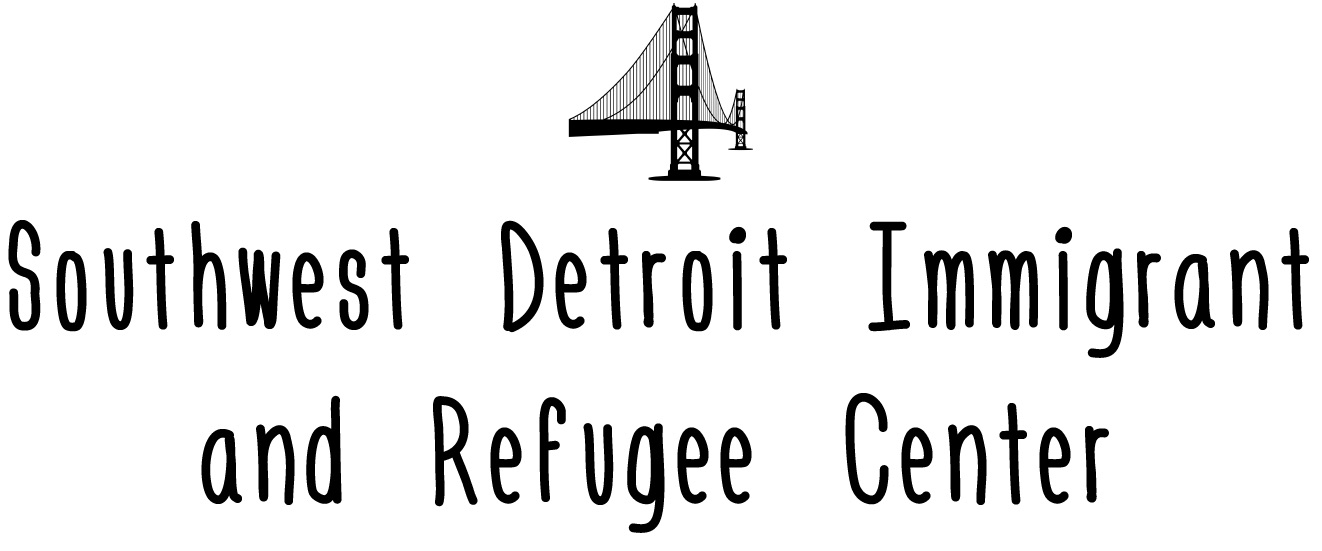by Adam Delezenne
This week at the clinic, we talked to Kisa, the sister of one of our long-time clients, Aval. We helped Aval complete and submit her permanent resident application, and she just received her green card. Now, as a permanent resident of the United States and a mom with a young child, she wants to help her sister also move here from their native Guatemala. Her sister is visiting the US on a tourist visa, and the amount of time she can stay here legally will be over soon.
The US immigration system can be very complex when you seek to immigrate with a visa. A visa is official government permission to enter and stay in the country. Visas are divided into two major categories: “immigrant” for people intending to settle in the United States permanently and “non-immigrant” for people expecting to return to their home country. There is no single “line” to wait in for immigrant visas; instead, there are four primary ways to stay here permanently, each with its requirements and application procedures: family visas, employment visas, refugee/asylum seekers, and the visa lottery. Visa lottery winners are randomly selected from an applicant pool that includes persons from around the world. The number of lottery visas is limited–and few who seek them actually “win” them. Refugees and asylees are people who have been persecuted in their home countries and seek protection in the United States. Obtaining either status is a lengthy and challenging process where one has to prove that the oppression they experienced in their home country fits the United State’s definition of persecution. For refugees, this process takes place outside the United States and is supervised by the United Nations. For asylum-seekers, this process generally occurs inside the United States, and most asylum seekers are ultimately unsuccessful. Family visas require that you have a family member already residing in the United States. Immigrant employment visas allowing a person to immigrate are usually reserved for persons with extraordinary skills or financial resources.
Kisa had hoped to come to the US with help from her permanent resident sister or through employment as a nanny. Unfortunately, neither of these are clear pathways for her.
Most employment visas issued are non-immigrant visas; the ability to stay in the US ends if the holder loses or changes their job. Immigration through employment is generally for people who are vital to the operation of a US-based enterprise, such as a corporation or hospital. Some can come to the US permanently because they can demonstrate that they are at the top of their professional field. Kisa’s work experience in Guatemala would not qualify for one of these visas. A few years ago, she might have qualified for a cultural exchange visa program allowing persons to come to the U.S. to work as Au Pairs, but now she has aged out of the program.
Immigration through a family relationship is the most likely option. Unfortunately, it is not immediately available to Kisa. Permanent residents, like Aval, are not able to apply for siblings to come to the United States. When Aval becomes a citizen (in five years), she could apply for a family visa for Kisa. However, the current wait for visas for the brothers and sisters of US citizens who come from Guatemala is more than 20 years. At this point, Kisa can expect to wait at least 25 years to obtain a visa this way.
Living permanently in the United States is Kisa’s goal, and Aval wants her sister close. She also wants someone to help with the baby. We suggested that she look into schooling in the United States. A student visa is a non-immigrant visa, and it expires when the education program is complete. Without another visa, the student must return to their home country, but it would enable this small family to be reunited for a more extended time than with a tourist visa.
We often counsel clients that applying for a visa that gives them some time here legally is preferable to entering the US without permission, which can have severe penalties. While a person is living here with a temporary visa, laws can change, or other opportunities to remain may become available as well. For many persons seeking a better life in the US, the available options to live and work here permanently are few and often challenging to obtain.
The Southwest Detroit Immigrant and Refugee Center provides free and low-cost legal services to those who need them most in the Detroit area, with a focus on recent immigrants and refugees.
We were founded in 2014 by Kevin Piecuch, our Executive Director
Donate to support justice for everyone
Volunteer to help serve our client communities
Visit one of our clinics if you need legal help
Photo by Scott Graham on Unsplash

